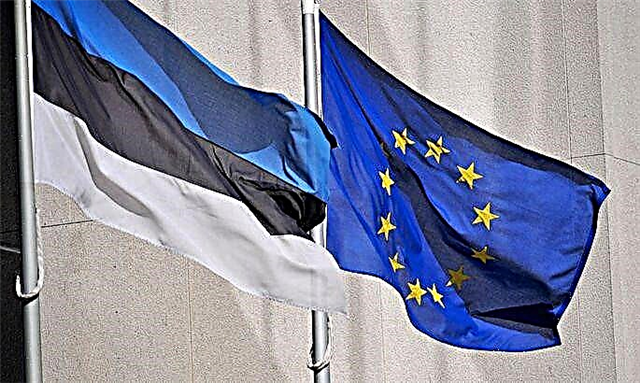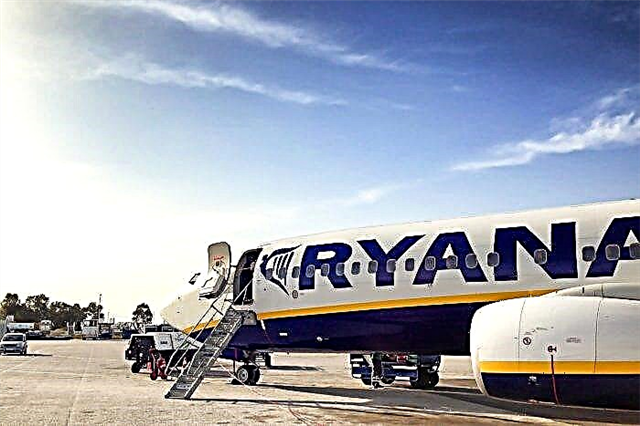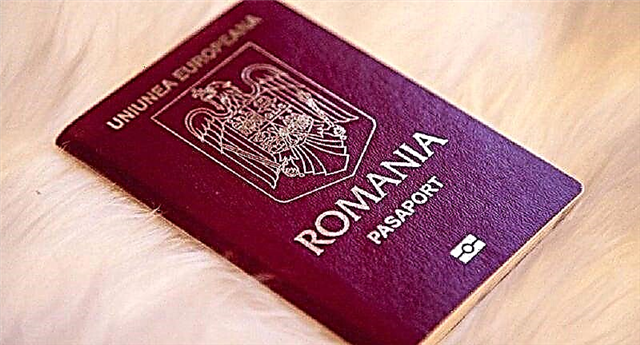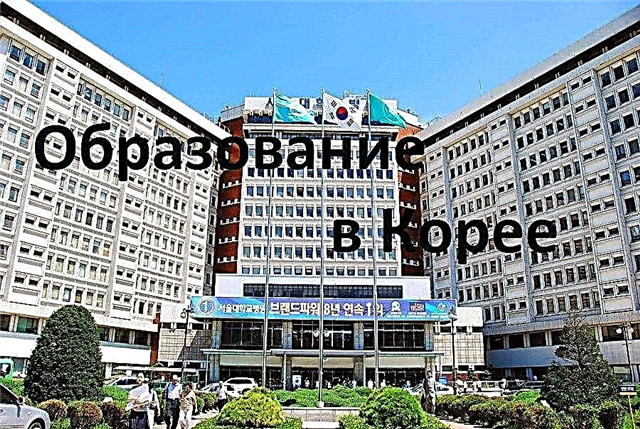South Korea is an industrial, stable developing state with a strong economy. The country's higher education system occupies one of the leading positions in the rating in the modern world.
The fundamental plus of Korean higher education is the high quality of knowledge. Specialists graduated from local universities are competitive in all countries. The flow of foreigners wishing to enroll in Korean universities is increasing every year.
Higher education in Korea
Education in Korea is conducted in two languages: Korean and English. Admission to the highest level is possible after completing a 12-year secondary education course.

The education offered by Korean institutions has a number of undeniable advantages:
- Professionalism of teachers who have passed a rigorous selection for work;
- High-tech equipment of the educational process;
- A well-developed program of scholarships and grants to support international students;
- Opportunity to attend additional courses, trainings, hobby classes.
Organization of the educational process
Students of Korean universities independently choose the disciplines they study, build the curriculum.
There are no lectures based on the teacher's monologue. Classes are held in the form of seminars in a discussion format. Students learn to reflect, speak in public, stand on their own point of view.
The criterion for the assessment is the student's ability to apply the acquired knowledge in practice.
For a semester, you must receive a certain amount of points for a successful transition to the next stage. Points are awarded for homework and attendance. Exams are taken twice a semester: intermediate and final.

The academic year in Korea starts in March and lasts until February:
You May Also Like
- The first semester is from March to August;
- The second semester is from September to February.
From July to August and from December to February, students take vacations.
The school week is five days, Saturday and Sunday are days off.
On a note! Strict discipline is the key to successful learning. Failure to comply with the rules of conduct at the institute, frequent late arrivals and absences from classes negatively affect the reputation, may cause exclusion from the university and even deportation to their homeland.
Foreign students after six months of study in Korea are officially allowed to work. The number of working hours per week during study is no more than 20. During the holidays, the time limit is removed. There are no problems with vacancies, the earnings received helps to compensate for the costs of studies.
Education programs
Universities in South Korea are divided into:
- Vocational colleges;
- Universities.

Duration of training:
- College education - 2-3 years;
- Bachelor's degree - 4 years;
- Master's degree - 2 years;
- Doctoral studies - no more than 4 years;
- Doctors have been trained for 6 years.
Ownership of Korean higher education institutions:
- National universities are run by the state;
- State universities are subordinate to local governments;
- Private universities are owned by private legal entities.
The Ministry of Education of South Korea puts forward serious requirements that all institutions must meet, regardless of the form of ownership.
You May Also Like
Popular specialties in Korea:
- International relationships;
- Economy;
- Jurisprudence;
- The medicine;
- Informatics and IT-technologies;
- Mathematics;
- Pedagogy.
Conditions for admission
The main prerequisite for admission to an institution in South Korea is a good command of English or Korean.
You can confirm the level of knowledge of the language in 3 ways:
- Having a TOEFL certificate at least C level;

- Providing an IELTC certificate from 5.5 points;

- Having passed at least level 3 the TOPIK Korean language proficiency test.
Russians cannot enter the first year of a Korean higher educational institution after the 9th or 11th grade, as well as Kazakhstanis, Uzbeks and other citizens of the CIS countries. After graduation, it is possible to enroll only in one-year preparatory courses at a Korean institute. At home, you need to study at the institute for at least 1 year in the specialty chosen for development in Korea.
Required documents
To enroll in a higher educational institution in South Korea, you should prepare a standard package of documents, which includes:
- Application for admission to a university;
- Autobiography;
- School certificate of complete secondary education;
- Certificate of study at the university;
- Extract from the courses attended, indicating the academic hours;
- A copy of the certificate confirming the knowledge of a foreign language;
- Motivation letter;
- A copy of the applicant's passport;
- Consent to the processing of personal data and verification of the information provided.
The provided copies of documents require certification by a notary.
On a note! Depending on the university and specialty, the list of required documents may be updated. The exact information should be checked with the international department of the chosen institution.
In most cases, Korean universities make a decision on admission based on the documents provided. In some educational institutions, interviews or exams are additionally conducted.
Student visa
After receiving a response on admission, you should attend to the issue of obtaining a Korean student visa.

The type of visa depends on the study program:
- D2 visa is issued upon admission to full-time education for obtaining a scientific degree, conducting scientific research;
- D4 visa gives you the opportunity to enter the country for language and cultural courses.
Documents for obtaining a Korean student visa in Russia:
- International passport;
- Certificate of admission to a Korean university;
- A document confirming payment for training;
- Agreement on the child's departure abroad from parents or guardians (for minors);
- Sponsorship letter.
Cost of education
A feature of the South Korean education system is the lack of free education. From the preschool level, education in Korea is paid for.
The cost of obtaining higher education does not depend on the prestige and location of the institute, but on the specialty and program. Government-funded public universities are cheaper than private universities.
The approximate cost of bachelor's studies in areas per semester:
- Humanitarian sciences - from 95 to 460 thousand rubles;
- Natural Sciences - from 115 to 550 thousand rubles;
- Technical science - from 115 to 525 thousand rubles;
- Culture and art - from 107 to 540 thousand rubles;
- The medicine - from 270 to 680 thousand rubles
The cost of master's programs may exceed the indicated amounts by 1.5-2 times.
On a note! Exact information about how much it costs to study for the selected program can be obtained by contacting the university directly.

To the amount of training should be added the costs of:
- Housing;
- Nutrition;
- Medical insurance.
Scholarships and grants for international students
The South Korean government provides material support to foreign students, including Russians, by distributing grants for studies.
Government programs that help to significantly reduce costs:
- Government scholarship - 800-900 thousand won (45-50 thousand rubles) are paid monthly for accommodation, flights, Korean language courses, textbooks, medical insurance are paid;
- Scholarship for Exchange Students with Excellent Achievement - the amount of monthly payments is 500 thousand won (28 thousand rubles) for accommodation, travel and medical insurance are compensated;
- International student support program, students at their own expense - compensation for living expenses in the amount of 500 thousand rubles) monthly.
Applicants for government scholarships undergo a rigorous competitive selection process and are required to submit documents according to the required list.
Successful students can look forward to scholarships from universities. The amount of the scholarship depends on academic performance, ranging from 30 to 100%. Students who excel in their studies have the chance to study for free: the university scholarship will fully cover all costs.
Exchange studies
Students of universities that have partnerships with Korean institutions have the opportunity to travel to Korea for exchange. To participate in the exchange, high academic performance and a conversational level of proficiency in a foreign language are required.
Accommodation and meals for students
After enrolling in the University of South Korea, you need to resolve the issue of accommodation for the duration of your studies.

Options where foreign students can live:
- Student hostel - rooms are designed for 1-4 people, there is no kitchen, meals are provided in the university canteen, the cost of living reaches 85 thousand rubles. per semester;
- Boarding house - it is possible to settle in a 1-bed or 2-bed room, two meals a day (breakfast, dinner) are provided at the appointed time, the cost is about 30 thousand per month;
- Rented room, apartment - the possibility of a separate residence, in which the possibility of self-catering is formed, the cost depends on the comfort of the chosen housing.
Top universities in the country
Three of the best universities in the country united by the abbreviation SKY:
- Seoul National University - the first university in Korea, included in the 50 strongest universities in the world, is the best technical university in the country;
- Korea University - a private university with an emphasis on humanitarian faculties, offering the best legal education in South Korea;
- Yonsei University - an elite university, the main specialization of which is medicine.

Reviews about studies
Yulia Nikishina:The level of education and life of students in South Korea meets all the requirements. The main difficulties I encountered were my lack of knowledge of the Korean language and the difference in mentality. To avoid adaptation problems, you should familiarize yourself with the information about the specifics of life in Korea in advance.
Basil:The language barrier helped me to overcome the Korean language courses that were held at the university, as well as live communication with local guys. Lived in a hostel, but, in my opinion, the payment is expensive.
Graduates from Korean universities are highly regarded and easily find high-paying jobs around the world. After graduation, it is not necessary to leave the country: well-established specialists receive lucrative job offers in Korea even during their studies.











